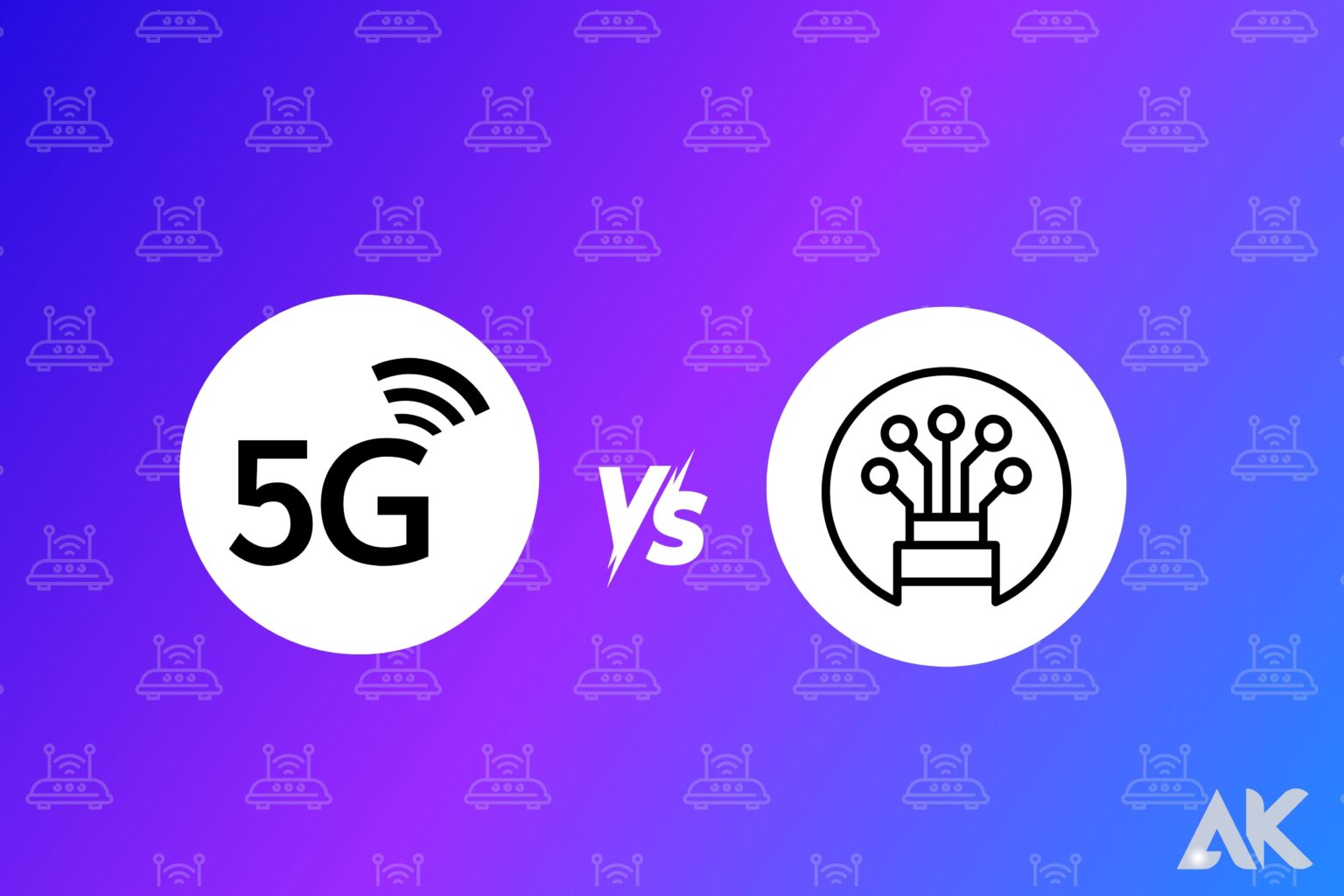introduction
5G Internet vs Fiber, Companies have had to meet lots of expectations as the world advances quickly. Technology has undergone important changes as a result of the fourth industrial revolution. There is no doubt that, as compared to the previous century, the last ten years have seen an important step in advance technology.
The new fiber and 5G internet have been among the major advances in the world’s many changes that have made it possible for people to communicate and transmit data more effectively. The quickest things you can imagine are slower than these technologies.
When it comes to 5G and fiber connections, there are many other considerations that must be made. In this article, we’ll examine these two cutting-edge technologies specifically and see how they differ from one another.
What is Fiber Optic?
The internet connectivity method that many businesses have already adopted is fiber optic. However, since fiber optic internet is delivered through the use of a copper wire connection, the idea behind it is slightly different. One of the most popular options is a link that transmits data primarily using light rather than power.
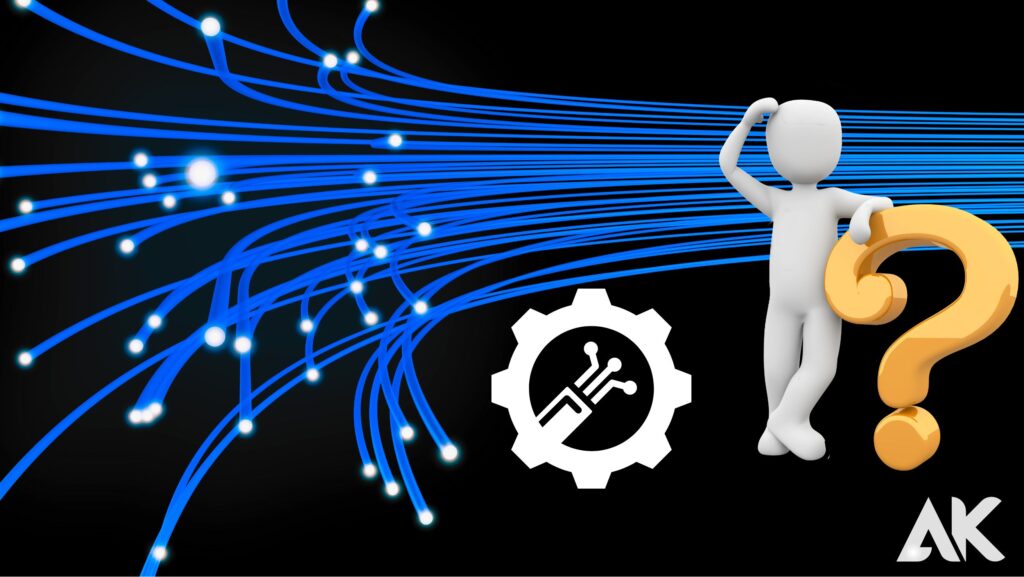
Due to internet disconnections, this internet access is recognized to be more dependable and preferable and has been designed with unlimited bandwidth.
How does it Work?
One of the most popular forms of connectivity in use today is fiber optic communication. Light typically flows through fiber optic cable by frequently bouncing off the walls. Every light particle or photon functions by reflecting off of a mirror and bouncing through the pipe.
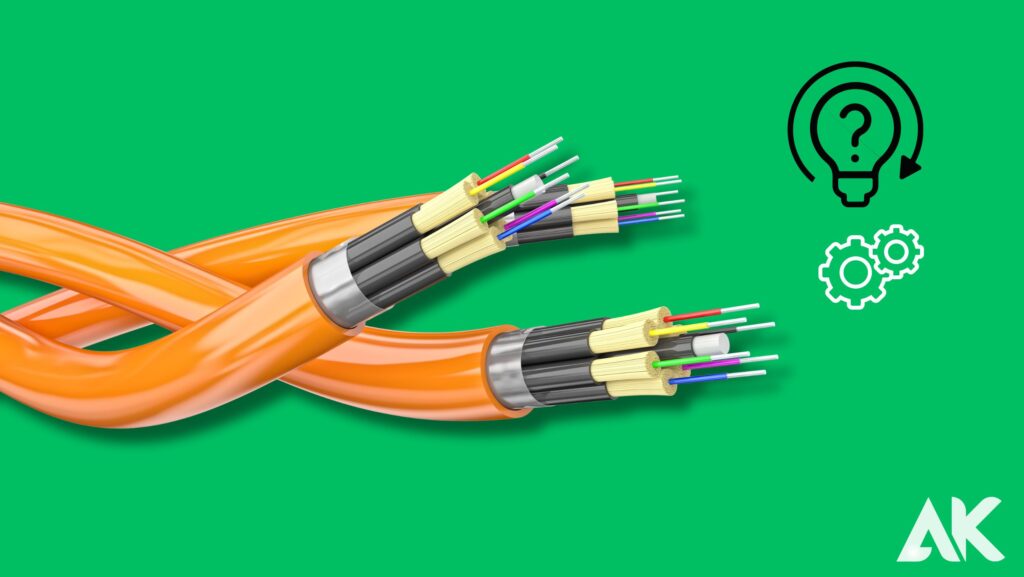
Generally, light travels through the cable core amid the glass structure and cable. Cladding is another glass layer wrapped across the core, keeping light signals in its core.
What is 5G?
5G does not have a hardline connection, in contrast to fiber optic internet, which is delivered to your home via a shielded strand of glass that is buried in the ground or suspended from a utility pole. Instead, it uses cell phone tower antennas to transmit signals to receivers placed close by inside the house. Naturally, bandwidth and service will improve the closer the home is to the tower.
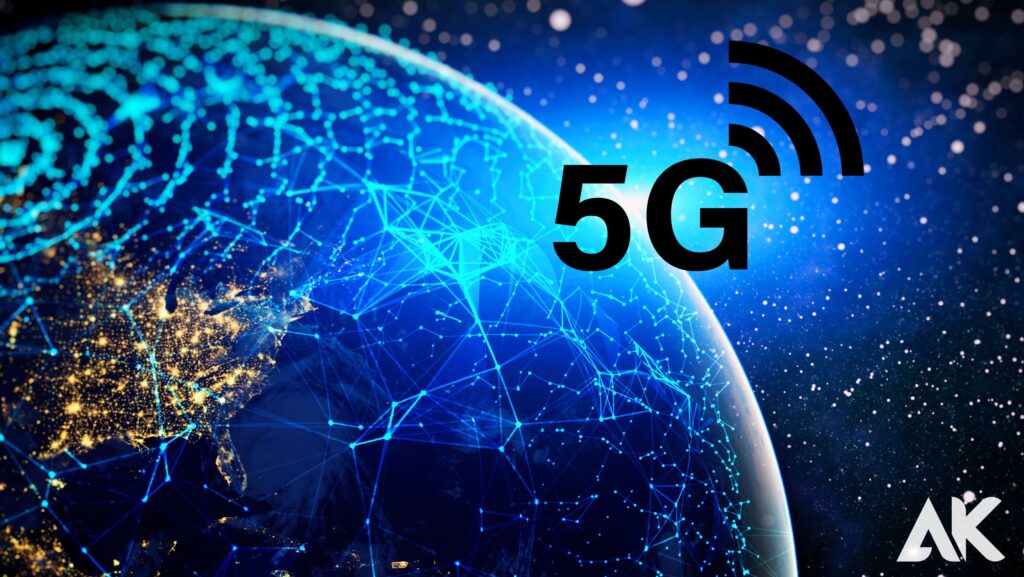
Ironically, since fiber is the quickest means to transport data, many 5G systems rely on fiber-optic links between towers for optimal speed.
How Does it Work?
The fifth generation (5G) of wireless technology uses radio frequencies to transmit data. Air is used as the medium. Similar to 4G, 5G operates, although it primarily uses high radio frequencies with fewer interference. This is due to the connection’s ability to transmit a greater volume of information more quickly.
These bands, commonly referred to as millimeter waves or mmwaves, are typically helpful for transmission. These were dormant but are now available for licensing. They were expensive and difficult to obtain because the general population was never used to using them as equipment.
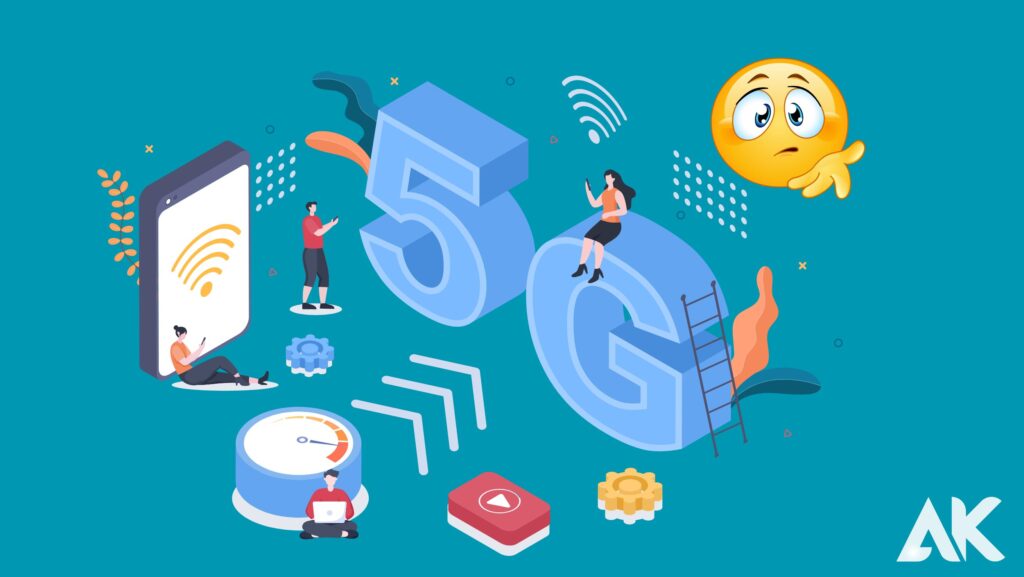
There is no doubting that higher bands have the capacity to transmit better information, but when it comes to transferring information across longer distances, there could be some issues. There is always a chance of being obstructed by various natural features like trees and buildings.
Many types of devices and services can be supported by this creative wireless technology. You can use cutting-edge technology without feeling any lag thanks to it.
IS 5G INTERNET BETTER THAN FIBER?
5G is not generally a more effective internet service than fiber for homes and businesses. This is so that high-quality internet connections may be maintained across a variety of devices while offering maximum speed and limitless bandwidth via wired internet connections, such as fiber optic cables. Depending on the service provider, the cost of 5G subscriptions compared to fiber optics may potentially be a consideration.
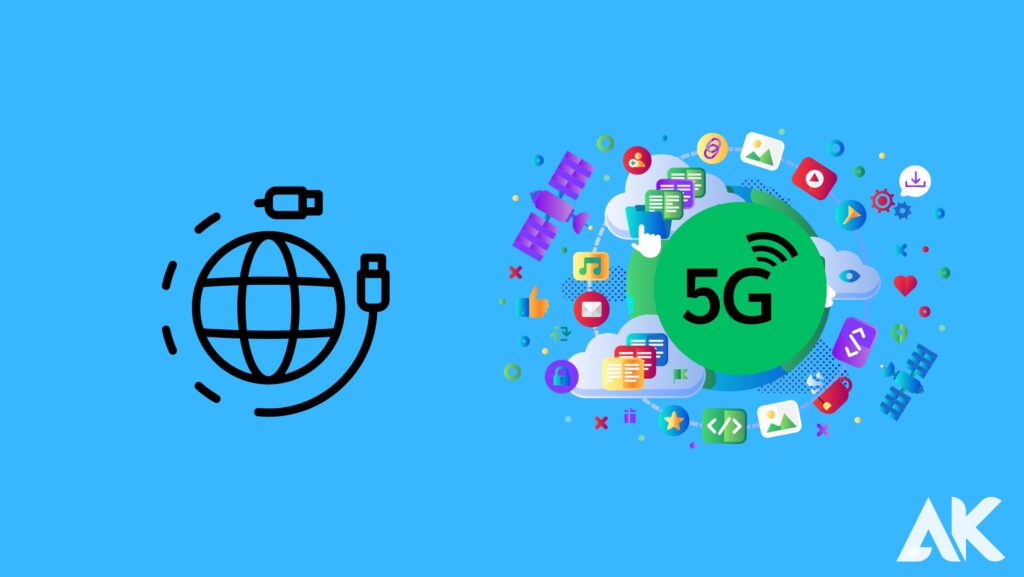
When network connections are strong, 5G connectivity surpasses 4G, although neither is as good as fiber. This is especially true if you use a lot of data, or if your company uses cloud-based tools to share information.
Comparison: 5G Network vs Fiber Optic
5G INTERNET vs Fiber Optic Security
There’s no hiding that 5G outperforms Fiber internet in terms of safety. It provides better data safety because it uses end-to-end encryption. Due to the fact that fiber internet connections are wired rather than wireless, data is less secured and safe.
As a result, user data security is offered by both of these connectivity services, but a 5G connection is more safe because it is dependable on radio waves rather than wired transmission.
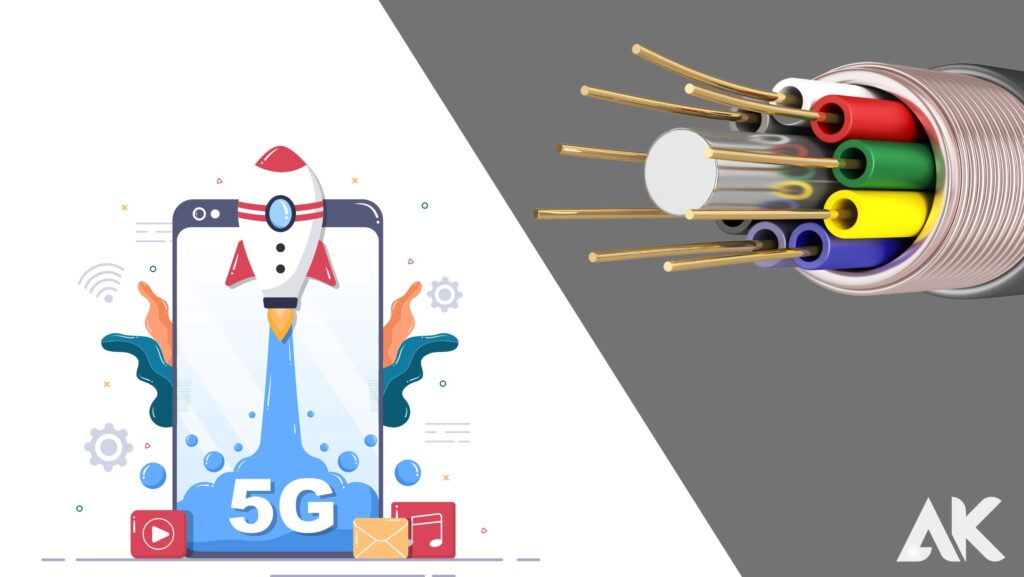
5G INTERNET vs Fiber Optic Connectivity
While fiber optic communication employs glass cables to carry data, 5G offers consistent network connectivity. Fiber cable, on the other hand, is extremely resilient. The converse is true of 5G, as the connectivity is not fully resistant to multiple harmful substances. The entire network may go down if a Fiber line is damaged until the next repair has been completed.
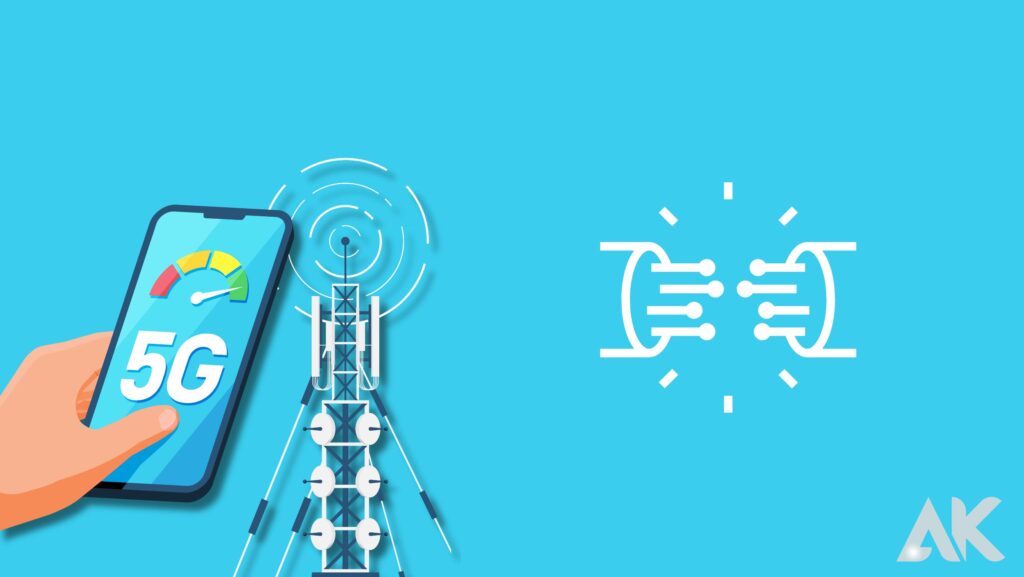
When it comes to 5G connectivity, it has the capacity and exceptional durability to link a variety of cell towers at once. Despite issues with individual towers, 5G can function effectively when devices are connected to several towers via radio waves. You won’t ever face connectivity issues thanks to this, not even during stormy weather.
5G INTERNET vs Fiber Optic Cost
Cost is yet another important aspect of choosing. Although access to 5G technology can be pricey, it is projected to be far cheaper than Fiber connectivity for distribution. Therefore, 5G is a terrific option when you require more access points over a wider spectrum, but it is obviously not practical for consumers on their own.
When it comes to installation costs, fiber optic connectivity is far more expensive for businesses, but customers may be able to access it for less money. With the aid of internet technology, businesses may cut costs and long-term maintenance costs.
5G INTERNET vs Fiber Optic Latency
Data speed is the amount of time it takes for data to move between two points. Typically, it is measured in milliseconds. A lower latency connection allows for faster data delivery.
It is about four ms when it comes to 5G latency. This is what makes 5G connectivity quicker to meet the rising demand while utilizing cloud-based apps, playing back videos, and browsing the Web. It might not be able to meet your needs for online gaming or business teleconferencing, though.
With regard to fiber internet, its low latency of roughly 1 ms makes it ideal for high-end communication. Many of the largest cities, including New York, have fiber-optic buildings because stock exchange servers need dependable and quick connectivity.
5G INTERNET vs Fiber Optic Installation
Although 5G is wireless communication, as is common knowledge, cable installation in your home is still necessary. The procedure for installation is the same as signing for any other form of connectivity. To receive 5G connectivity at your address and pay for the equipment that needs to be installed outside of your apartment or home, you need confirmation from the internet service provider. Before utilizing the network, you must complete some documentation and sign a contract.
When it comes to installation, fiber optic connectivity is once again more difficult than 5G. It is necessary to run fiber-optic cable from the junction box closest to you to the location where you wish to install it if you want to enjoy fiber internet connectivity in your home. Once finished, you can quickly connect more devices using Ethernet cables or Wi-Fi connections.
5G INTERNET vs Fiber Optic Reach
Users desire more reachability so they can quickly connect to the internet. The 5G technology has a minimum range of 100 meters. However, fiber-optic communication can transfer signals across a distance of more than 70 kilometers without losing strength. The speed of 5G communication is hence greater than that of Fiber connectivity.
5G INTERNETvs Fiber Optic Climate Effect
The environment must always be taken into account. Every connection is created with the many environmental conditions in mind because nature is one of the most important aspects of our way of life. Being reliant on over-the-air broadcast is one of the main drawbacks of 5G. Environmental conditions like temperature, precipitation, and wind can thus negatively impact connectivity, just like they might with any other radio transmission.
5G INTERNETvs Fiber Optic Speed
The speed of the most recent 5G network is among its main benefits. This is how 5G will be able to compete with all of the more established ones. In accordance with the cell tower, density, and coverage area, it has the capacity to deliver data more quickly than 4G technology. Since technology has advanced so much since the previous generation, 5G has been designed in a way that provides greater coverage. However, compared to earlier technologies, it requires more towers per square mile.
However, cable optic connectivity, since it is wired connectivity, also offers very good speed. More specifically, 5G can deliver speeds of 10 GBPS for app links and 20 GBPS for downlinks, compared to the cable optic connection’s practical speed of 100 GBPS.
Conclusion
5G internet and fiber internet are two cutting-edge technologies that have revolutionized the way businesses communicate and transmit data. Fiber optic internet is delivered through a copper wire connection, utilizing light rather than power to transmit data. This technology is considered more reliable and preferable due to its unlimited bandwidth.
5G uses cell phone tower antennas to transmit signals to receivers placed close by inside the home, improving bandwidth and service. It is not generally a more effective internet service than fiber for homes and businesses, but it can be more reliable when network connections are strong.
5G outperforms fiber internet in terms of data security, as it uses end-to-end encryption, which is more secure than fiber internet. However, 5G’s connectivity is more resilient than fiber, as it can link multiple cell towers at once. This ensures uninterrupted connectivity even during stormy weather.
Cost is another important aspect of choosing 5G. While access to 5G technology can be expensive, it is projected to be far cheaper than fiber internet for distribution. 5G is a great option for businesses that require more access points over a wider spectrum, but it is not practical for consumers on their own. Fiber internet is more expensive for businesses, but customers can access it for less money.
Latency is another important aspect of choosing 5G. 5G has a lower latency of around 4 milliseconds, making it faster for cloud-based apps, video playback, and browsing the web. However, it may not be suitable for online gaming or business teleconferencing.
Installation for 5G is similar to signing for any other form of connectivity, with cable installation in the home being necessary. To receive 5G connectivity, customers must complete documentation and sign a contract before using the network.
FAQ
Is 5G the same as fiber?
Describe 5G. 5G does not have a hardline connection, in contrast to fiber optic internet, which is delivered to your home via a shielded strand of glass that is buried in the ground or suspended from a utility pole. Instead, it uses cell phone tower antennas to transmit signals to receivers placed close by inside the house.
Does 5G replace fiber?
Contrary to common belief, a reliable and upgradeable fiberoptic cable network will be necessary for 5G and other upcoming technologies. The implementation of 5G technology won’t change because it depends on fiberoptic infrastructure to provide seamless connectivity.
Is Fiber more stable than 5G?
Fiber is the preferable route for a more reliable connection at home, but 5G becomes the only option in locations without fiber infrastructure.
What is 5G internet equal to?
Normal 5G home internet speed ranges from 100 to 300 Mbps. However, 5G internet speeds can go as high as 1,000 Mbps, depending on your plan and the level of local cell service.
Why fiber internet is faster?
Because fiber carries data using light rather than electricity, it enables quicker Internet connections that can handle higher capacities. Even during periods of high demand, fiber businesses supposedly frequently provide 117 percent of promised speeds.

